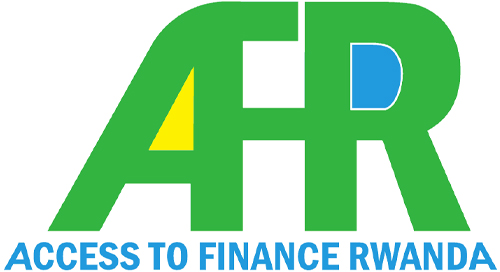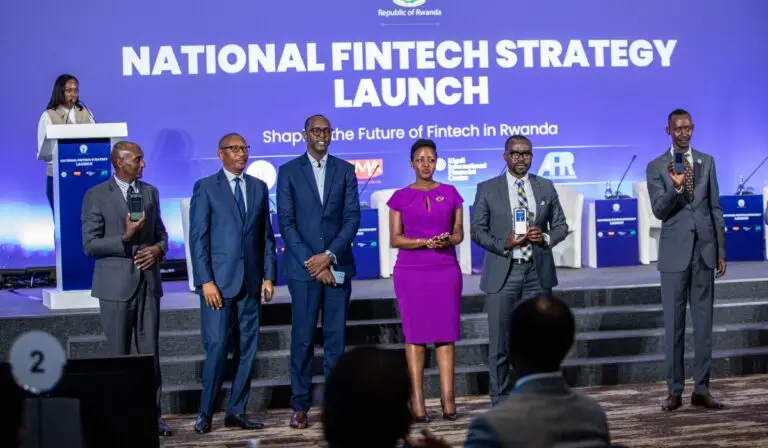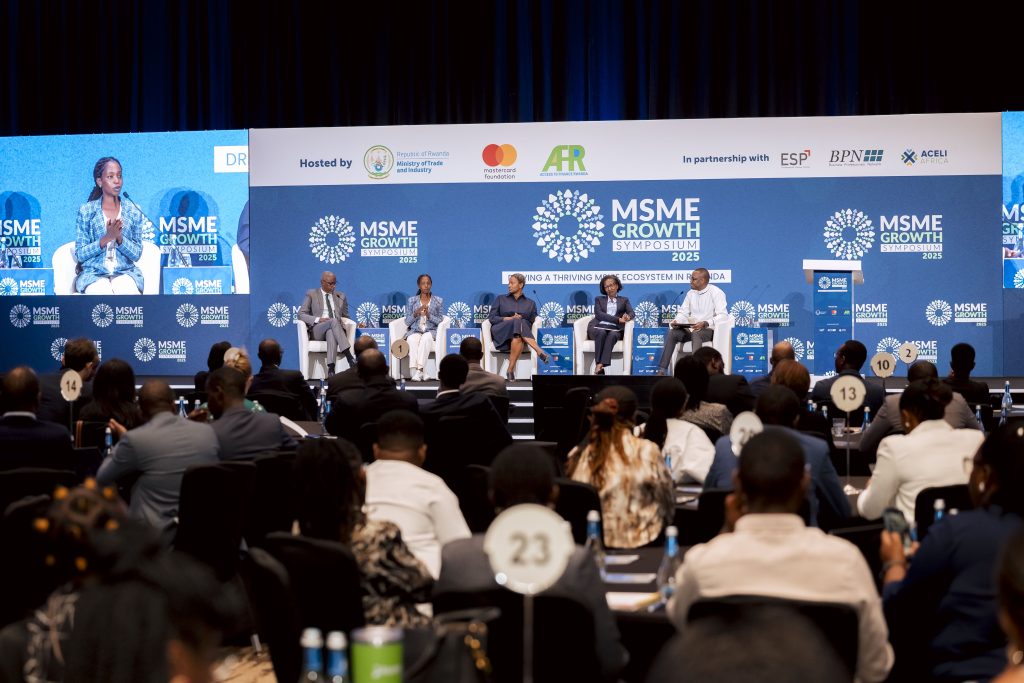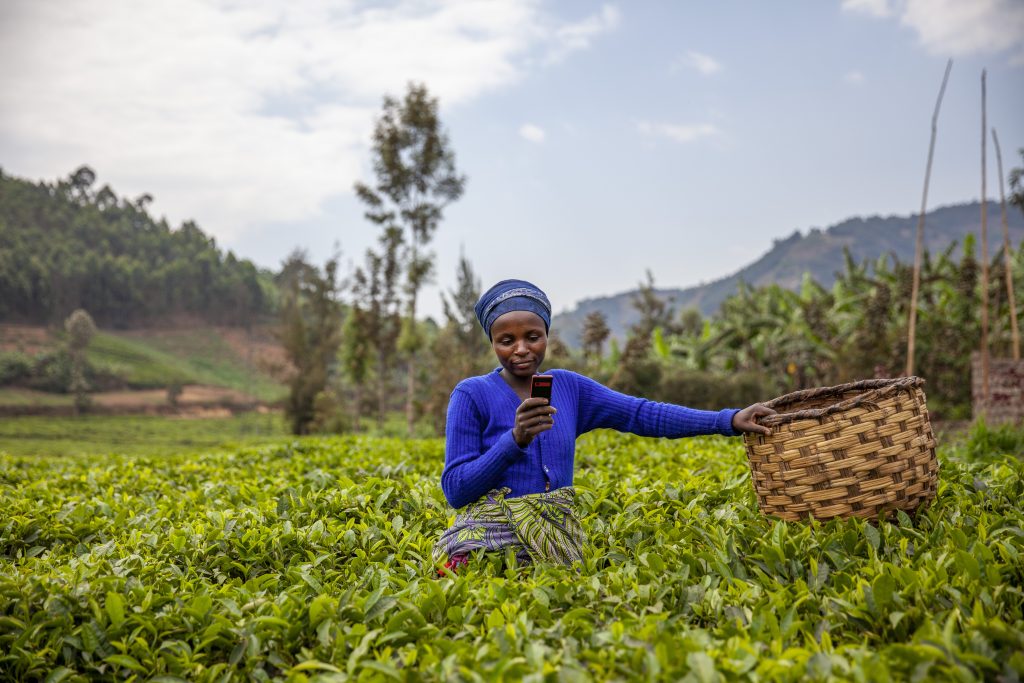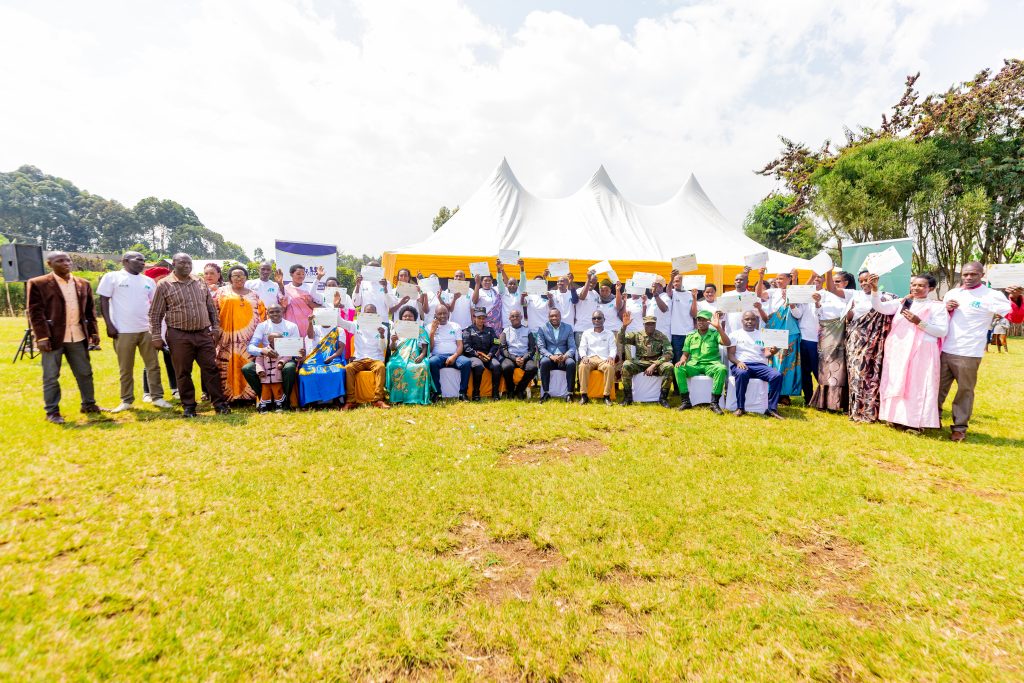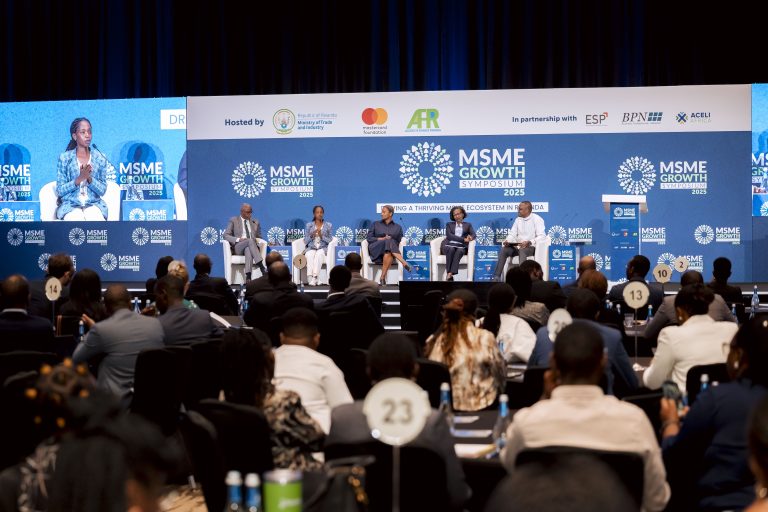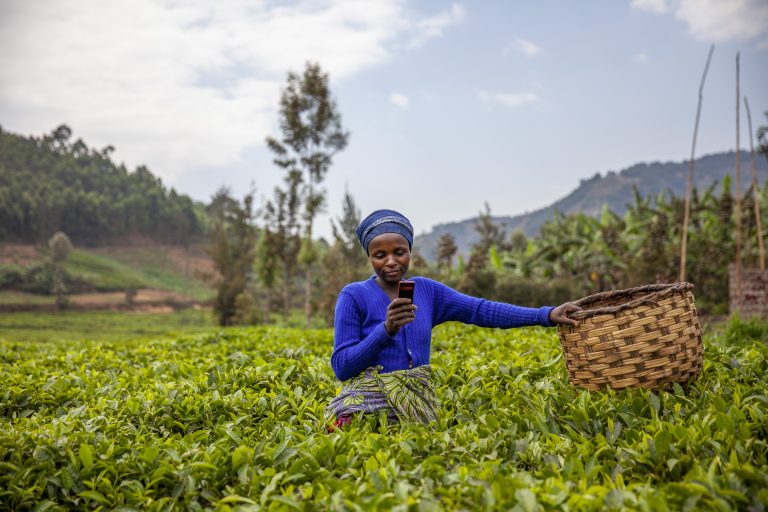On May 21, Access to Finance Rwanda (AFR) and the Women in Finance Rwanda (WIFR) Foundation formalised a new partnership through a charter to promote gender parity in Rwanda’s financial services sector.
By signing this charter, AFR reaffirmed its commitment to working with other members of the WFIR Foundation to advance and attain gender balance at all levels throughout the financial ecosystem.
As part of this collaboration, four women employed at AFR received full scholarships to participate in a nine-week financial certification course on sustainable and responsible investment provided by the Chartered Institute for Securities and Investment (CISI) in London.
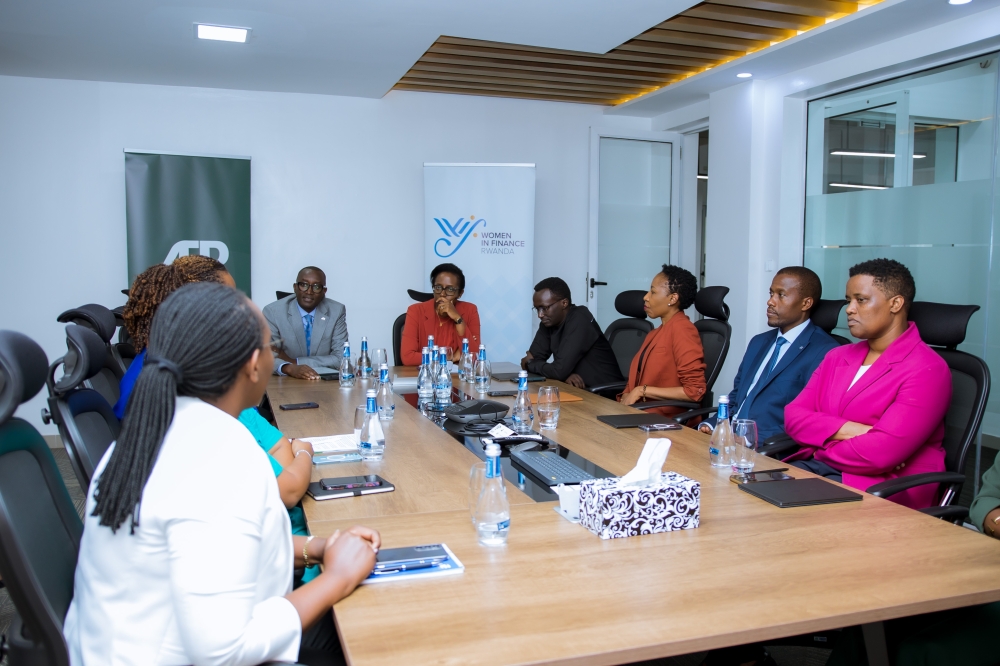
The signed charter aimed to promote gender parity in Rwanda’s financial services sector.
Speaking during the signing of the Charter on Gender Equality, Jean Bosco Iyacu, CEO of Access to Finance Rwanda (AFR), reflected on AFR’s progress and reaffirmed its commitment to advancing gender parity both within the organisation and across the financial sector.
He explained that signing the charter is both a renewal of AFR’s internal commitment and a signal to the wider financial ecosystem.
“We talk about institutional numbers, but we don’t yet know what’s happening across the entire financial sector, but we need to understand the constraints women face and develop actionable recommendations to improve representation at all levels,” he said.
Diane Karusisi, Council Member of Women in Finance Rwanda (WIFR), emphasised the importance of deliberate action in achieving gender parity within the financial sector, outlining the WIFR Foundation’s mission to create a more inclusive financial sector by investing in the growth of women professionals in the financial services sector.
“Gender equality and equity are something everyone wants to see, but for us to get there, there is a need to be intentional. It cannot just come about by sitting and hoping for the best. We want to help women grow career-wise. The more women we have in financial institutions, the more women will have access to and use the right financial products to help them thrive,” she said.
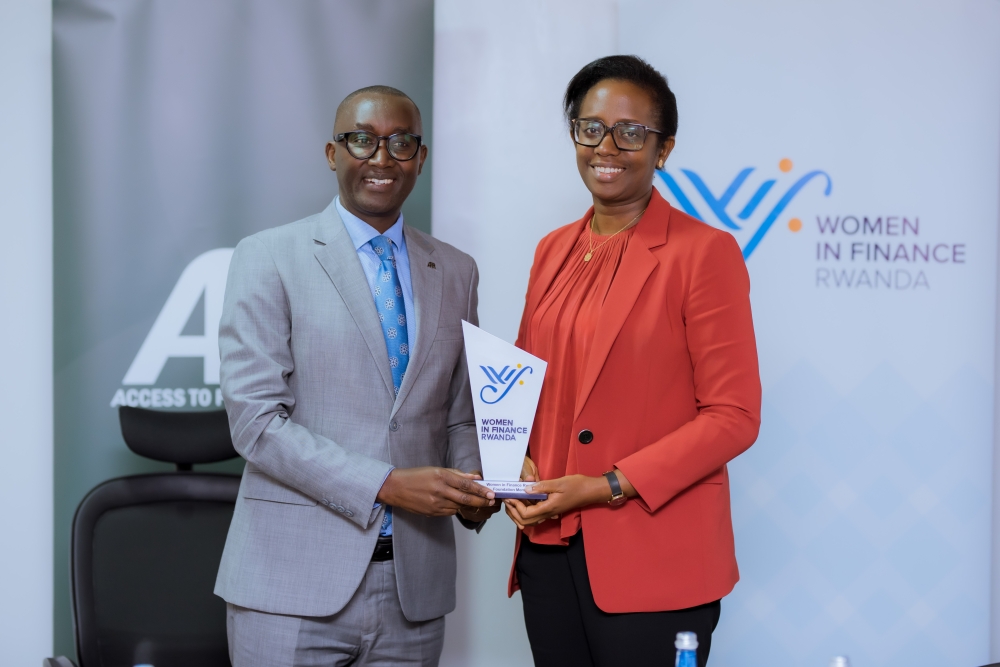
The signing of the Charter on Gender Equality took place on Wednesday, May 21.
Karusisi also spoke about WIFR’s partnership with the UK-based Chartered Institute for Securities and Investment (CISI), which has led to certifications in sustainable finance and the future of finance.
“The more partners we have, the faster we can move. If our target was to reach an inclusive financial industry by 2050, with all of you on board, we might reach it by 2030,” she added.
One of the four women from Access to Finance Rwanda (AFR) who received scholarships, Honnete Isimbi, expressed deep appreciation to Women in Finance Rwanda for their support, emphasising how the scholarship opens doors to learning networks and opportunities that have historically been harder for women to reach.
“It is both an honour and a heartfelt privilege to receive this scholarship, and I want to express my sincere gratitude to Access to Finance Rwanda and Women in Finance Rwanda for the first step towards transformation,” she said.
Isimbi noted that the sponsorship not only recognises achievement and potential, but also reinforces women’s access, achievement, and agency — their ability to make decisions, influence outcomes, and lead change.
As a market catalyst, AFR facilitates a diverse and inclusive financial sector that delivers real value to the economy and people, in particular, unserved and underserved populations. AFR has made significant strides in advancing diversity and inclusion within its governance, with women representing 50 per cent of both its Board of Directors and Senior Management Committee. The organisation is also actively working to extend this commitment throughout its broader staff structure.
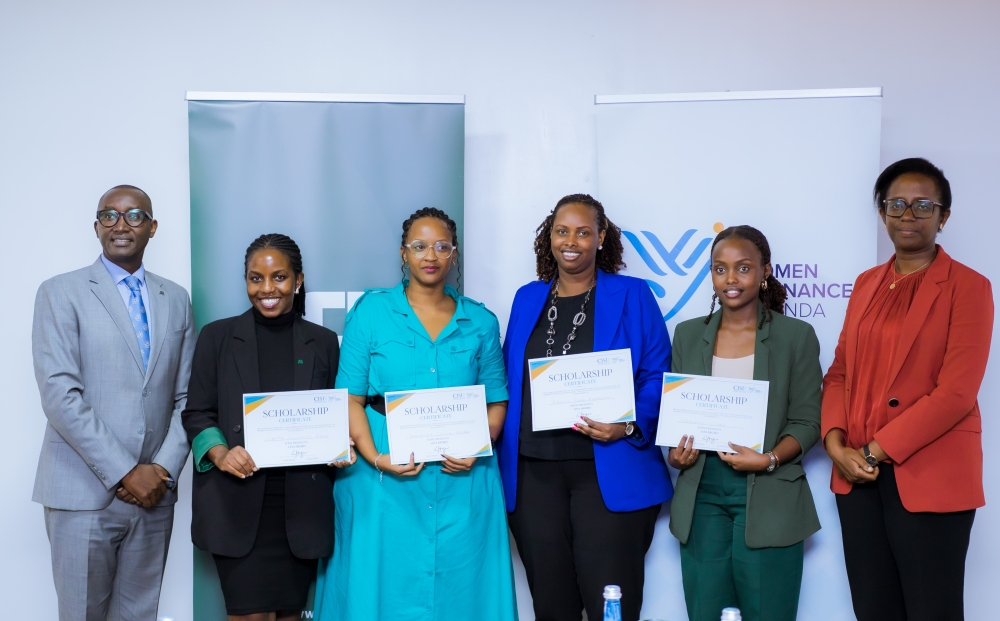
As part of this collaboration, four women employed at AFR received full scholarships to participate in a nine-week financial certification course on sustainable and responsible investment.
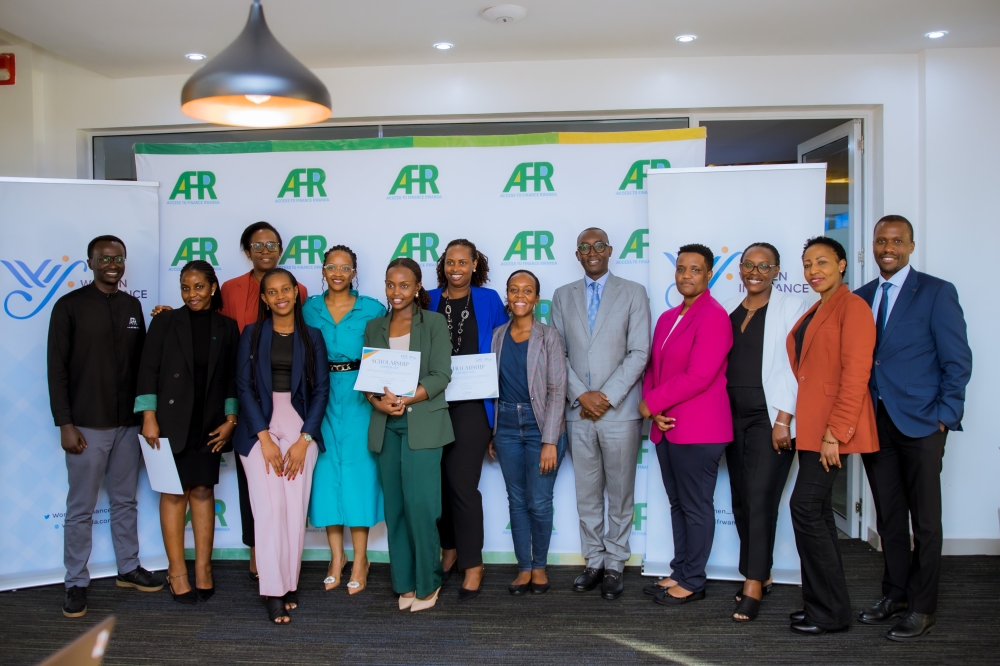
By signing this charter, AFR reaffirmed its commitment to working with other members of the WFIR Foundation to advance and attain gender balance at all levels throughout the financial ecosystem.
